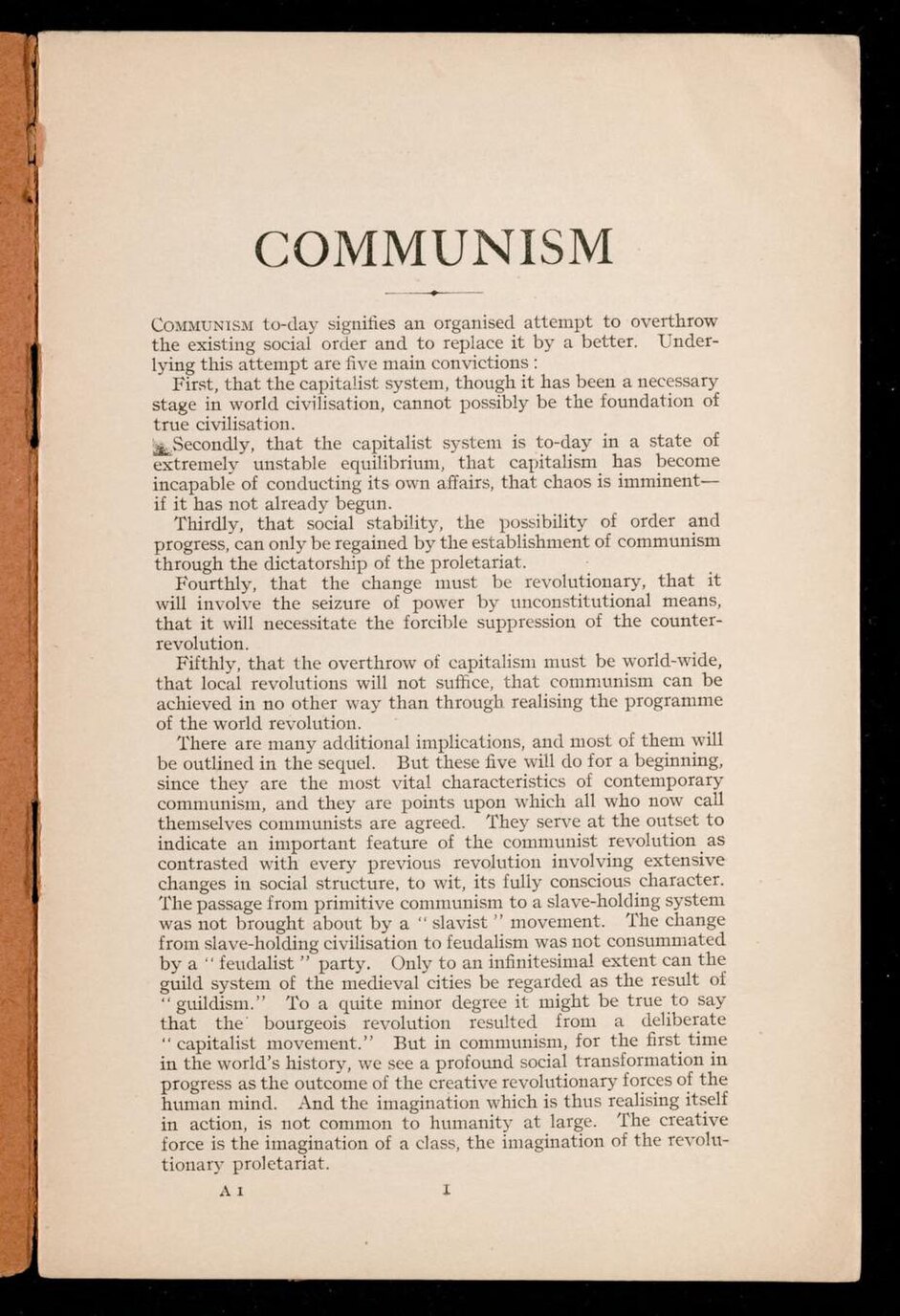COMMUNISM
Communism to-day signifies an organised attempt to overthrow the existing social order and to replace it by a better. Underlying this attempt are five main convictions:
First, that the capitalist system, though it has been a necessary stage in world civilisation, cannot possibly be the foundation of true civilisation.
Secondly, that the capitalist system is to-day in a state of extremely unstable equilibrium, that capitalism has become incapable of conducting its own affairs, that chaos is imminent—if it has not already begun.
Thirdly, that social stability, the possibility of order and progress, can only be regained by the establishment of communism through the dictatorship of the proletariat.
Fourthly, that the change must be revolutionary, that it will involve the seizure of power by unconstitutional means, that it will necessitate the forcible suppression of the counter-revolution.
Fifthly, that the overthrow of capitalism must be world-wide, that local revolutions will not suffice, that communism can be achieved in no other way than through realising the programme of the world revolution.
There are many additional implications, and most of them will be outlined in the sequel. But these five will do for a beginning, since they are the most vital characteristics of contemporary communism, and they are points upon which all who now call themselves communists are agreed. They serve at the outset to indicate an important feature of the communist revolution as contrasted with every previous revolution involving extensive changes in social structure, to wit, its fully conscious character. The passage from primitive communism to a slave-holding system was not brought about by a "slavist" movement. The change from slave-holding civilisation to feudalism was not consummated by a "feudalist" party. Only to an infinitesimal extent can the guild system of the medieval cities be regarded as the result of "guildism." To a quite minor degree it might be true to say that the bourgeois revolution resulted from a deliberate "capitalist movement." But in communism, for the first time in the world’s history, we see a profound social transformation in progress as the outcome of the creative revolutionary forces of the human mind. And the imagination which is thus realising itself in action, is not common to humanity at large. The creative force is the imagination of a class, the imagination of the revolutionary proletariat.
1
